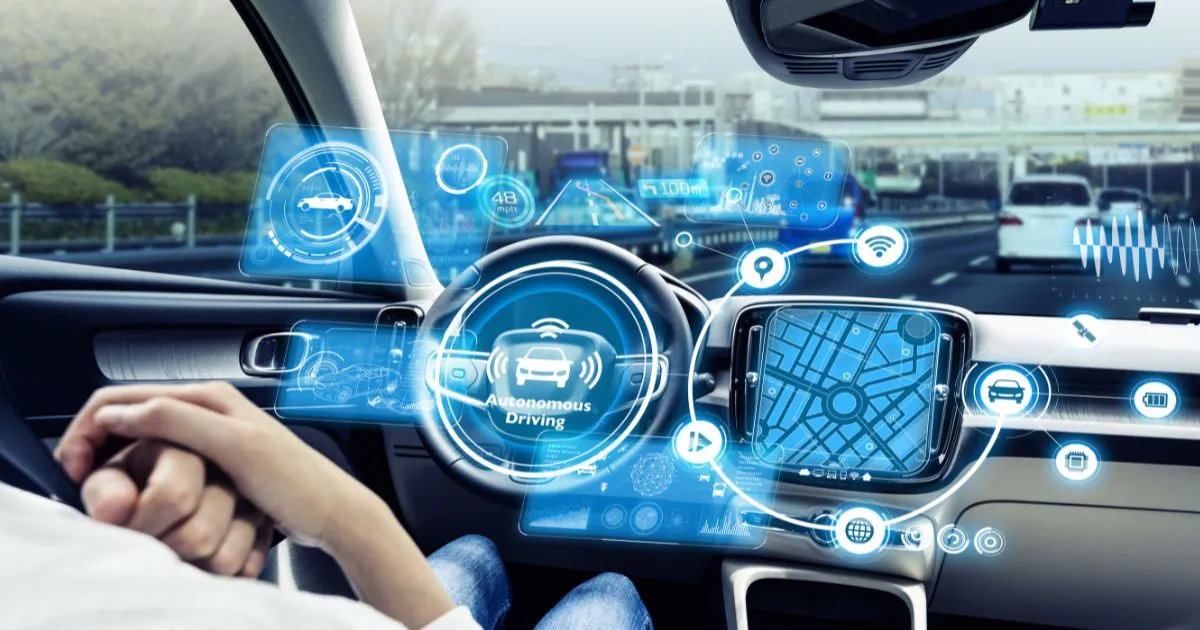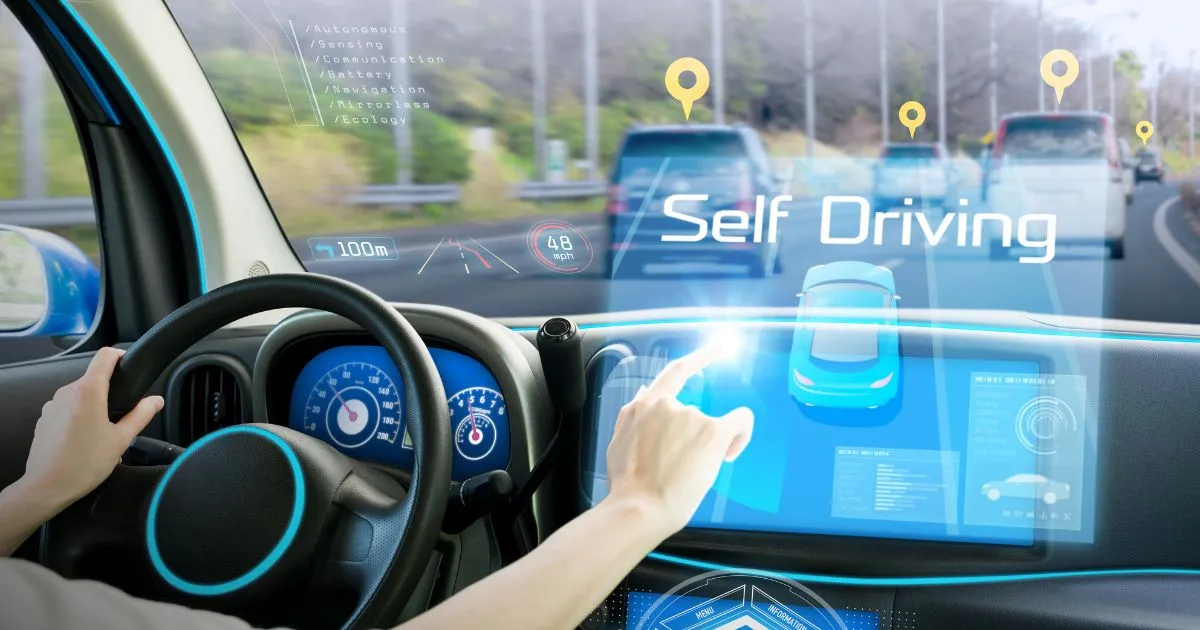Self-Driving Revolution: What Is The Future Impact Of Autonomous Vehicles?

The roar of engines might soon be replaced by the whirring of sensors and the hum of electric motors as autonomous vehicles (AVs), also known as self-driving cars, prepare to reshape our world. This article delves into the exciting future of AVs, exploring their evolution, potential benefits, lingering challenges, and the broader societal and environmental implications they herald.
From Prototype to Paved Roads: The Evolution of AVs
Driven by advancements in machine learning and artificial intelligence, AVs have progressed beyond science fiction films and are actively tested on real roads. While fully autonomous vehicles are still evolving, various levels of automation are already present in modern cars, offering a glimpse into the future.
Buckling Up for a Smoother Ride: The Envisioned Benefits
The future of AVs promises a multitude of advantages that could transform our relationship with transportation:
- Enhanced Safety: With human error minimized, AVs have the potential to drastically reduce road accidents, saving countless lives.
- Unclogged Arteries: Improved Traffic Flow: Through communication and coordination, self-driving cars can optimize traffic flow, easing congestion and minimizing travel times.
- Mobility for All: Increased Accessibility: Individuals who currently cannot drive, such as the elderly or those with disabilities, could gain newfound independence and freedom thanks to AVs.
- Eco-Conscious Cruising: Greater Efficiency: Optimized driving patterns led by AVs could result in reduced fuel consumption and emissions, contributing to a cleaner environment.
- The Sharing Economy on Autopilot: New Business Models: Ride-sharing services without human drivers and on-demand autonomous deliveries are just a few possibilities waiting to be explored.
Navigating the Bumpy Road: Challenges and Concerns
Despite the promising outlook, several hurdles need to be addressed before AVs become mainstream:
- Safety First: Securing Absolute Safety: Ensuring the complete safety of passengers and pedestrians remains paramount.
- Fortress on Wheels: Addressing Cybersecurity Threats: Robust cybersecurity measures are crucial to protect AVs from hacking and manipulation.
- Gearing Up for the Future: Infrastructure Needs: Upgrading road infrastructure to accommodate AV communication and operation is essential.
- Clearing the Legal Lane: Regulatory Hurdles: Clear and comprehensive regulations are needed to govern the development, testing, and deployment of AVs.
A Booming Industry on the Horizon: Future Revenue and Market Projections
The economic impact of AVs is predicted to be significant. Reports estimate that by 2035, the AV industry could generate between $300 billion to $400 billion, signifying immense potential for growth and innovation.
Shaping Our Tomorrow: Potential Impact on Society and the Environment
The widespread adoption of AVs could have far-reaching consequences for society and the environment:
- Saving Lives on the Road: Reduced Road Deaths: With safer roads, the human cost of traffic accidents could diminish significantly.
- Cleaner Skies Ahead: Improved Air Quality: Optimized driving patterns and potential cleaner electric AVs could lead to better air quality and reduced emissions.
- Rethinking the Cityscape: Urban Transformation: Cities might be redesigned to accommodate AVs, impacting infrastructure, parking needs, and overall planning.

Introduction
Autonomous vehicles, also known as self-driving cars, are set to revolutionize the automotive industry and transportation as a whole. This article delves into the future impact of autonomous vehicles, including their evolution, benefits, challenges, and potential implications for various aspects of our lives.
Evolution of Autonomous Vehicles
The development of autonomous vehicles has been a focal point for many automotive and technology companies. Significant advancements in machine learning and AI have propelled the evolution of self-driving cars, making them increasingly viable for widespread use.
Benefits of Autonomous Vehicles
The future of autonomous vehicles holds several potential benefits, including increased safety, improved traffic flow, enhanced accessibility, and greater efficiency. These advantages have the potential to transform the way we commute, travel, and transport goods.
- Increased Safety: Autonomous vehicles have the potential to significantly reduce the number of accidents on the road, as they are less likely to make mistakes than human drivers
- Improved Traffic Flow: Through communication and coordination, self-driving cars can help reduce congestion and minimize travel times
- Increased Accessibility: Autonomous vehicles can make transportation more accessible for individuals who are unable to drive, such as the elderly or people with disabilities
- Improved Efficiency: Self-driving cars have the potential to optimize driving patterns, leading to reduced fuel consumption and emissions
- New Business Models: The rise of autonomous vehicles could give birth to new business models, such as ride-sharing services without human drivers.
The future of AVs promises a multitude of advantages that could transform our relationship with transportation:
Benefit |
Description |
| Enhanced Safety | With human error minimized, AVs have the potential to drastically reduce road accidents, saving countless lives. |
| Improved Traffic Flow | Through communication and coordination, self-driving cars can optimize traffic flow, easing congestion and minimizing travel times. |
| Increased Accessibility | Individuals who currently cannot drive, such as the elderly or those with disabilities, could gain newfound independence and freedom thanks to AVs. |
| Greater Efficiency | Optimized driving patterns led by AVs could result in reduced fuel consumption and emissions, contributing to a cleaner environment. |
| New Business Models | Ride-sharing services without human drivers and on-demand autonomous deliveries are just a few possibilities waiting to be explored. |
Challenges and Concerns
While the potential benefits of autonomous vehicles are substantial, there are several challenges and concerns that need to be addressed before they become a mainstream technology. Safety, cybersecurity, infrastructure, and regulatory hurdles are among the most pressing challenges that must be overcome to ensure the successful integration of autonomous vehicles into our daily lives
Future Revenue and Market Projections
According to various reports, the future of autonomous vehicles is poised to create a significant economic impact. By 2035, autonomous driving could generate between $300 billion to $400 billion in revenue, signaling a massive potential for growth and innovation in the automotive industry.
Impact on Society and the Environment
The widespread adoption of autonomous vehicles could have far-reaching implications for society and the environment. From reducing road accidents and improving air quality to transforming the way we plan and design urban infrastructure, self-driving cars have the potential to reshape our world in profound ways

FAQ’s
Q: What is the expected market size of the autonomous vehicle industry in the future?
A: The autonomous vehicle market is projected to reach between $300 billion to $400 billion by 2035, indicating substantial growth potential
Q: What are the primary benefits of autonomous vehicles?
A: The primary benefits of autonomous vehicles include increased safety, improved traffic flow, enhanced accessibility, greater efficiency, and the potential for new business models
Q: What are the main challenges associated with the widespread adoption of autonomous vehicles?
A: The main challenges include ensuring safety, addressing cybersecurity risks, upgrading infrastructure, and navigating regulatory hurdles
- What is the future scope of autonomous cars?
- The future scope of autonomous cars is vast, encompassing safer and more efficient transportation. It involves advancements in technology, regulatory frameworks, and societal acceptance. The integration of autonomous vehicles into everyday life is expected to transform how we commute, reducing accidents, improving traffic flow, and enhancing overall transportation efficiency.
- What is the future of AI in vehicles?
- The future of AI in vehicles is promising, with continuous developments in artificial intelligence driving innovation. AI is expected to play a pivotal role in enhancing vehicle autonomy, enabling features such as self-driving capabilities, advanced driver-assistance systems, and improved in-car experiences. Machine learning algorithms will evolve to make vehicles smarter, safer, and more responsive to various driving conditions.
- What is the impact of autonomous vehicles on society?
- The impact of autonomous vehicles on society is multifaceted. On the positive side, it can lead to reduced traffic accidents, increased mobility for individuals with disabilities or the elderly, and improved traffic management. However, concerns include job displacement for professional drivers and the need for robust regulations to address safety and ethical considerations.
- What would be the future if everyone uses driverless cars?
- A future where everyone uses driverless cars could result in safer roads, reduced traffic congestion, and increased productivity during commutes. However, it may also raise ethical and regulatory challenges, necessitating a careful balance between technological advancement and societal well-being. The transformation would extend beyond individual transportation, influencing urban planning, insurance models, and even the automotive industry structure.
- What are the potential impacts of autonomous vehicles on our lives?
- The potential impacts of autonomous vehicles on our lives are extensive. Beyond the convenience of self-driving cars, we might see changes in city planning, reduced need for parking spaces, and improved accessibility. The time traditionally spent on driving could be utilized for work, leisure, or relaxation, fundamentally altering daily routines and lifestyles.
- What is the latest technology in autonomous vehicles?
- The latest technology in autonomous vehicles includes advancements in sensor technology, machine learning, and connectivity. LiDAR, radar, and cameras are becoming more sophisticated, enabling vehicles to perceive and navigate their surroundings accurately. AI algorithms for decision-making continue to improve, and vehicle-to-everything (V2X) communication is enhancing connectivity between vehicles and infrastructure.
- What is the future scope of AI in transportation?
- The future scope of AI in transportation extends beyond autonomous vehicles to include smart traffic management, predictive maintenance for vehicles, and efficient route planning. AI will contribute to creating a seamless and integrated transportation system, optimizing resources, reducing emissions, and improving the overall efficiency and safety of various modes of transportation.
Read more article-
1- Is Cyber Security A Good Career For Freshers In India?
2- How Automation Tools Can Boost Your Activity?
3-What Category Best Describes Digital Marketing?
4- Which Category Is Best For Digital Marketing?
5- How Can Automation Help In Improving Production Processes?
6- What Cybersecurity Jobs Pay The Most
7- How Do You Create A Healthy Online Presence For A Business
8- What Are The Two Main Categories Of Digital Marketing?
